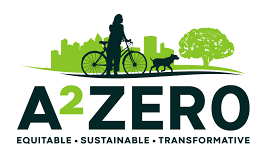Ypsilanti – Washtenaw County Community Mental Health (WCCMH) has released its 2023 Public Safety and Mental Health Millage annual report, showcasing the impact of millage investments. These funds have significantly expanded mental health services across the county, benefiting tens of thousands of residents through enhanced support and resources.
The millage has been instrumental in addressing the increasing demand for mental health services. For instance, in 2018, just before millage funds were available, WCCMH handled an average of 4,500 calls per month. By 2023, this number had surged to 8,500 calls per month, reflecting the growing community need and the successful expansion of services.
The Millage Advisory Committee, responsible for overseeing the allocation of these funds, has directed resources across five key service categories:
- Behavioral Health Service Expansion – $3,801,144
WCCMH has broadened access for individuals regardless of their insurance status, extended care to those with mild to moderate mental health needs, and enhanced crisis services, including face-to-face interventions. - Youth Supports – $947,771
Recognizing the importance of early intervention, millage leaders have prioritized youth mental health services by funding programs that enhance access to care for young people at WCCMH, schools, and other local providers. - Supportive Housing – $794,508
Understanding the critical link between housing and mental health, the millage advisory committee has allocated funds to support organizations such as Avalon Housing, Michigan Ability Partners, Ozone House, the Shelter Association of Washtenaw County, and the Ypsilanti Housing Commission. - Behavioral Health Prevention and Education – $513,525
Millage-funded programs aim to reduce stigma around mental illness, promote help-seeking behaviors, and equip community members with the skills needed to respond to mental health crises. - Criminal Justice Reform – $489,411
The millage supports criminal justice reform through funding jail-based treatment, reentry services, and programs that divert individuals with behavioral health issues from the criminal justice system into community services.
“We’re proud that the majority of these millage dollars directly benefit the community,” said Trish Cortes, executive director of Washtenaw County Community Mental Health. “Over 90 percent of allocated funds go directly to services to support residents.”
Millage investments support programs at 15 community partners, including Avalon Housing, the National Alliance on Mental Illness, and the Washtenaw Intermediate School District.
For an overview of accomplishments, read the one pager.
And, to learn more about how the Washtenaw County Sheriff’s Office invests their millage dollars, read their five year millage impact report.












